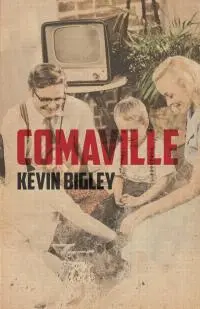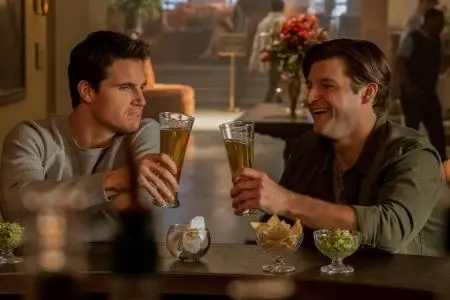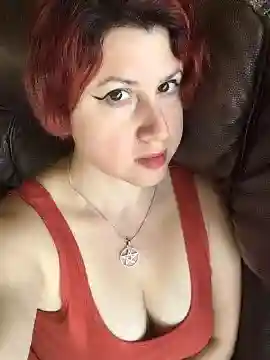Photos via Amazon
Kevin Bigley is an actor and writer living in Los Angeles and working in Hollywood. His debut novel, Comaville, is out now from CLASH Books. His latest TV role is in Upload, a dark comedy by Greg Daniels that explores the afterlife experience in a future world where self-driving cars and virtual heavens are perks for the wealthy, while the less fortunate must do with the more affordable knockoff versions. Humor is the coating that helps the medicine go down in this exploration of a toxic Capitalist system, where even in death there are brackets of privilege. I had a chat with Kevin about his dual passions of acting and writing, how they feed into and play off of each other, as well as the fascinating thematic overlaps between his book and Upload, which is now streaming on Amazon.
So you’re an author and an actor. How would you say each craft feeds into or plays off of the other?
I’d say that, as an actor, I have some experience focusing on character. And that usually means being aware enough to bring your own idiosyncrasies to who you’re playing, or perhaps those from people you know. One of the best pieces of advice I’ve gotten, in numerous forms from numerous people in regards to both writing and acting, is to find a character’s contradictions. Everyone has them (they believe one thing, but they do another, or what do they want and what’s keeping them from getting it?), but it’s contradictions that build a comedy engine. And endless ideas come from that.
Also, I’d say that working as an actor, especially in comedy, you’re expected to improvise. And that is a skill I’ve found to be very helpful in regards to spitting out dialogue, or in the rough draft process. So I’d say that I lean on my acting skill-set both in practice as a writer, but also as my way in.
Nice. Tell me more about your writing process.
I have to give myself permission to suck. What that looks like is a series of steps. I approach [fiction] in a similar way that I approach screenwriting. First, I try to become obsessed with the idea. This begins with notes on my phone with random ideas that hit me until I can’t stop thinking about it. That crosses over to a notebook where I journal about the idea, as well as the themes.
Some writers avoid themes, but to me, they unlock everything (help me find story, and conclude story lines). After I flesh out characters, themes, and set pieces (moments I want to see), I move into note carding to build around them.
I have to do things in steps or phases because the idea of starting with a single blank page is paralyzing.
I write the chapter on the top of the card, I give it a title that summarizes what it’s about to me, then bullet point some general ideas of what might happen in a sentence or two. When I work my way through, I then move to something I call a “vomit doc” (my wife hates this term). It’s a document that I use to write the story or book; it’s essentially free writing with no punctuation or edits. Just stream of consciousness, puking out the story in one long improvisation. And I essentially write the whole book/story like that, never revising or rereading. After I’ve completed it, I open a separate document and switch to actual prose, beginning from the top of my vomit doc. After I fully work my way through, after months, I’ll do a pass with a reread.
Then I print it out and read it out loud. I go through an editing process that Greg Daniels taught me which is called a “two hat theory.” He developed it on The Simpsons. Basically, in The Simpsons writer’s room he was always concerned with the competitive nature of joke writing; there would always be someone willing to beat the jokes in your draft. So he would look at his script, put on the hat of criticism, and just sweep through with a red pen and criticize himself without finding any problems. Essentially, it’s like giving yourself notes, but from the perspective of a shitty agent, or snotty teen. “Not funny,” “This part is boring,” “pretentious.” His feeling was that the writer brain, as it critiques its own work, will then manifest an excuse to defend the choice. So, by criticizing without a solution, you can then go back through and… I forget the name of the second hat, but let’s call it “problem solving hat,” and fix the shitty notes you gave yourself.
This is long winded. But basically, after harsh notes from myself, that’s how I arrive at a manuscript I’m ready to submit.
What was the inspiration for your novel Comaville? Tell us a bit about the story and why it was one you wanted to tell.
I’m a terrible sleeper when I’m shooting on a show or movie. There’ve been plenty of times where I’ve gone 40 hours without sleep for a single shoot. So I made up a game. It was born from having moved around so much as a kid. I think I collected as many as eight different apartments/houses in my adolescence. The object was: as I was lying in bed I would choose a room from my past, belonging to one of the various houses where we’d lived, and I’d reconstruct it in my mind. It was soothing and fun. Then, I expanded on it, picking classrooms and playgrounds, cafeterias, streets and stores that I was nostalgic for. But soon, the game become so enthralling that I found I was getting less sleep than when I normally went to bed. My nostalgia had become detrimental to my health and well being.
So that was the main impetus.
But there were many others. I’m a deeply nostalgic person, spending much of my time trying to relive the past. I’m even nostalgic for times that don’t belong to me. And certainly through entertainment, our generation has become very nostalgic. I read somewhere that nostalgia is the most useful and commonly used marketing tool deployed toward Millennials, compared to other generations. So nostalgia feels as if it has been weaponized against us.
And so much of the book, and I suppose my own nostalgia, is about grieving time. The fact that it’s finite. The book, and my writing, aren’t this cynical, but it is a bittersweet thought as the limited nature of our supply makes time, whether it be with loved ones or places, both fleeting and precious.
Are you working on screenplays as well? Is it part of your writer dream as an actor/author to get your material produced in film or TV?
 I do write screenplays and have attempted to develop in the past. Pitching television and film, and much of what it takes to get something made, is exhausting and depressing for me. It takes a lot of the fun out of the act of creating, as well as the process itself.
I do write screenplays and have attempted to develop in the past. Pitching television and film, and much of what it takes to get something made, is exhausting and depressing for me. It takes a lot of the fun out of the act of creating, as well as the process itself.
That’s one of the best parts about writing fiction: there’s very little compromise. Even when you’re working with an editor, they’re helping push your work to the height of its capabilities. Whereas, sometimes with film and television, there are so many cooks in the kitchen, as well as companies and brands, that you forfeit the ownership. Until there’s a failure, in which its pinned on you entirely.
So, I’d say that my dream in regards to incorporating my writing more into my film/television career would be to get smaller films financed. Currently, I write with a partner, Ryan Collins, and we have a surrealist indie that we really like and that checks all the boxes of what I’m talking about. It’s dark and absurdist, but also funny and thought provoking. It feels like an accurate representation of the movies I’d like to make. My wife, Kate Cobb, is an actor and producer, and she’s helped fine-tune it. We’re currently circling a director who worked with me on Upload. So hopefully this dream is more of a reality sometime in the near future.
Your new show Upload is out now and I gotta say I was pretty tripped out when I binged the first season, seeing the startling similarities between the themes and main premise of the show and your book.
In the show a man is recently dead and uploaded into a virtual heaven. In your book, Comaville, a man is in a coma and is experiencing an odd sort of tailored reality that is unsettlingly pleasant in similar ways that the Upload heaven seems to be. I got this sort of Pleasantville vibe reading your book, actually. Everything seems so great but you know this man is potentially on his deathbed, losing oxygen in real life. So there’s this dark undercurrent to the bright and cheerful surface he’s experiencing.
Is this just some sort of bizarre coincidence?
I think something was kind of in the water, yeah. I had begun plotting out Comaville before I read the pilot. And it was almost a year before Upload was picked up and we had the first scripts to read, and by that time I was nearly finished. But I think it was something people were thinking about; messing around with the idea of ostensible utopias.
I’d say it was probably kicking around in my subconscious as much as George Saunders’s Lincoln in the Bardo, and Saunders in general. There’s always an ache of disappointment mixed with humor that feels painfully real with his stuff. And I think Upload has a similar tone. A kind of, the sugar helps the medicine go down. So if you conflate the two, you’re probably in the neighborhood of what I was trying to do.
As far as actual, driving influence, I wanted Josh’s coma-dreamscape to feel boundless and quirky, like some Vonnegut, but the hospital room to feel like slow-burn realism, Updike/Rabbit-esque. Those are lofty goals more than they are me foolishly and arrogantly comparing myself to great writers. I only mention them because they served as tonal road maps. Zadie Smith as well because I think she thinks of fiction in a modern way; that it is in competition with other forms of entertainment, so it’s important to consider the alchemy of your book and how it can operate. There are plenty others: Stanley Elkin and Barry Hannah, for sure. But yeah, all of those helped with constructing it.

Nice! I think you definitely pulled off that juxtaposition of unsettling irreality and gritty realism.
So what’s down the pipeline for you, writing-wise and acting-wise — that you can talk about.
Acting-wise, there’s a lot of waiting. Sets have been given the all-clear for June 12th to begin operation, but I don’t think we’re just going to jump back to work. It’ll be a gradual thing. I was set to start shooting season two of Undone in March, and that was of course postponed. It’s such a small crew, I think we can achieve that one this summer, hopefully.
Upload will be trickier, but… and I can’t believe I’m saying this… Mission Impossible: 7 is giving us hope. They’re shooting in September, so I’d figure that many of our productions can get back to work but with a ton of restrictions.
For writing, I have a WIP that I’ve been nursing for over a year now. It takes place in my hometown/county: Sutter County, California. It was where the first Americans discovered gold in the country (John Sutter), and the area has a rich (and poor) history. So I’ve developed this story that jumps around in time; in 1850 from the birth of my hometown, and then in 1980 (just beyond its peak), and to modern times which sees the area in rough shape. Characters reflect the themes of the times and will hopefully portray an accurate portrait of events, along with the area’s spirit. Mostly, the book will be about the adversarial role that a hometown can play in someone’s life. To me, it’s very American to love where you’re from but to want to be better than it. We personify these places and are either extremely comforted by them, or see them as an enemy. And especially in a place with poverty, the need to escape is amplified, but the hooks it has in you are deeper. It makes your relationship with the town and people more volatile. So I’m trying to play with those elements in a way that feels like a convoluted love letter to the area I’m nostalgic for, but that gives me the chip on my shoulder. When gold was discovered, the area was christened “The Gateway to the Goldfields.” So that’s the tentative title.
Awesome! Any parting words for writers and artists struggling to get visibility and get their shit out there?
I’d say research places that feel like they fit with your voice. Engage in the community, become a fan of others. We’re all weirdos with soft under bellies, so be a helpful, genuine person.
And the mystique of “the writer” is horseshit. Coming from where I come from, I always thought authors, actors, and musicians were born, not made. That you came into this world a genius with the divine right to participate in the art world. But that’s so blatantly false. It’s like anything else in that it takes time and actual work. So set aside time, and spend it on what you want to get good at. Treat books like drugs, ingest them to alter your mind and influence you. If you ingest culture that inspires you and dedicate the time to your own work, that combination will lead to an end product of some sort. And as long as it’s truthful, that’s all that matters. Be yourself in your work (the permission to be funny, which I received through reading funny writers, was eye opening for me). With those parameters, you can’t lose.
Buy Comaville from Bookshop or Amazon

About the author
Leza Cantoral is the author of Trash Panda, a collection of poetry, and Cartoons in the Suicide Forest, a collection of short fiction, and the editor of Tragedy Queens: Stories Inspired by Lana Del Rey & Sylvia Plath. She is Editor in Chief of CLASH Books. She has published poetry and nonfiction in Luna Luna Magazine, Entropy, Philosophical Idiot, Breadcrumbs Magazine, Cultured Vultures, Quail Bell Magazine, Verse, and A Shadow Map: An Anthology of Survivors of Sexual Assault (CCM). She is the host of Get Lit With Leza, a podcast where she talks to cool ass writers while getting hammered. She has a B.A. in Cultural History from Marlboro College. Follow her on Twitter & IG @lezacantoral








